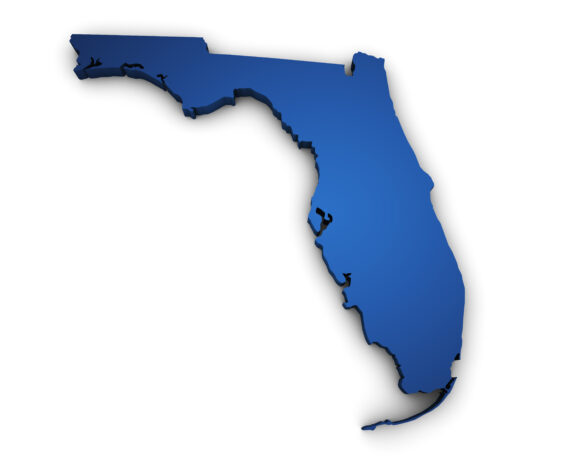The Florida House of Representatives’ Commerce Committee passed no fewer than five bills Wednesday that could affect property and casualty insurance, from allowing surplus lines carriers to be based in Florida, to encouraging more take-outs of Citizens Property Insurance policies.
House Bill 951 would, for the first time, allow Florida-based surplus lines insurers to sell surplus policies in Florida. A similar bill has met with little opposition in the Senate, but HB 951 ran into some unexpected criticism in the House committee.
The bill’s sponsor, Rep. Tommy Gregory, R-Bradenton, and other supporters have said the measure would help Florida’s increasingly distressed property insurance market by giving commercial property owners and homeowners more companies to choose from. But Hillary Cassel, an attorney with the Florida Policyholders Cooperative, pointed out that because surplus lines are not subject to the same Florida regulations as domestic P/C carriers are, many of them require policyholders to settle disputes through arbitration in out-of-state venues.

“This is going to provide an avenue for carriers in the state to open up a separate book of business, which is great, considering the state of the marketplace,” Cassel said. “But we want to make sure that there are some additional consumer protections so that homeowners and business owners in this state aren’t forced to resolve a dispute out of the state of Florida and allow other states’ laws to apply.”
Rep. Michael Grieco, D-Miami, agreed, quoting social media memes about other issues. “I don’t know why we would want to ‘New York our Florida,'” he said.
Rep. Charles Clemons, R-Cross City, said that in light of the insurance crisis in the state, most policyholders would understand the caveats, especially since some people may not be able to find insurance otherwise.
The committee voted overwhelmingly to approve the bill.
HB 1307, also by Rep. Gregory, would make a number of changes to the way Citizens, the state-backed insurer of last resort, does business. For starters, the bill would make Citizens policyholders ineligible for renewal if other insurers offered premiums that are only slightly higher – starting at 5% higher in 2023 and climbing to 20% by 2026.
The original bill would have stiffened the requirements that Citizens officers and board members have insurance industry experience, but that was removed in an amendment to the bill Wednesday.
HB 1307 also would require state regulators to approve the method Citizens uses to value dwelling replacement costs; would increase a surcharge placed on policies as the number of policies grows. The number of Citizens policyholders is on track to top 1 million by year’s end, as other insurers withdraw from the market and Citizens’ premiums remain lower than other carriers in many cases. That puts taxpayers at risk if major disasters hit the state.
Lawmakers and others have advocated for ways to reduce the corporation’s exposure. The surcharge would help discourage policyholders by increasing to 25% of the premium if Citizens reaches 1.5 million policyholders, according to the bill.
Gregory warned that without the changes, Citizens could soon become the insurer, not of last resort, but of “only” resort for most Floridians.
HB 749, by Clemons, would increase penalties for unlicensed public adjusters who violate the law; would require home and auto warranty firms to provide their full business name and license number; will allow digital driver licenses and will require that electronic driver information include insurance coverage info; and would notify drivers of lapses in coverage.
The bill also would let the Department of Financial Services fine insurers up to $2,000 per day if they fail to comply with investigations of insurance fraud.
Florida’s chief financial officer, Jimmy Patronis, applauded the passage of the bill, which now goes to the House floor.
HB 503, also by Gregory, would make changes to a number of programs. These include modifications to when a collateral-protection insurance policy is eligible for Florida Hurricane Catastrophe Fund coverage; allows Citizens to insure some condominiums through commercial wind-only policies; and allows smaller construction companies to avoid annual audits by workers’ compensation insurers.
HB 837 would divert some money from the catastrophe fund to be used for hurricane preparedness, home wind-mitigation improvements, shelter construction and other projects.
The committee approval means that most of the bills will now head to the House floor for a vote. Similar bills are making their way through Senate committees. Lawmakers have until March 11, the last day of the 2022 session.
Topics Carriers Legislation Florida Fraud
Was this article valuable?
Here are more articles you may enjoy.



 Nine-Month 2025 Results Show P/C Underwriting Gain Skyrocketed
Nine-Month 2025 Results Show P/C Underwriting Gain Skyrocketed  BMW Recalls Hundreds of Thousands of Cars Over Fire Risk
BMW Recalls Hundreds of Thousands of Cars Over Fire Risk  US Appeals Court Rejects Challenge to Trump’s Efforts to Ban DEI
US Appeals Court Rejects Challenge to Trump’s Efforts to Ban DEI  How One Fla. Insurance Agent Allegedly Used Another’s License to Swipe Commissions
How One Fla. Insurance Agent Allegedly Used Another’s License to Swipe Commissions 


